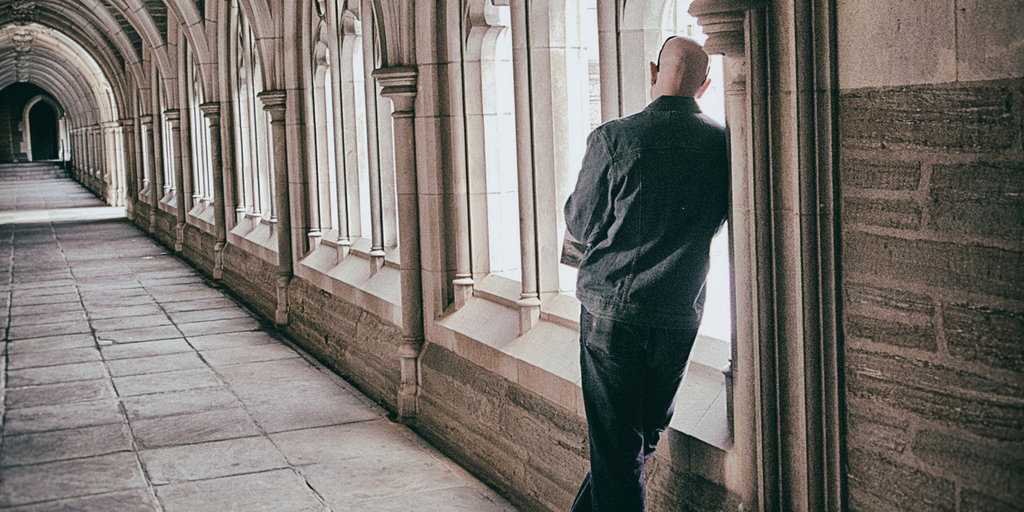We’re in the season of Advent: the beginning of the Christian year and a time of waiting, longing, preparation, and expectation.
In the midst of a culture that wants to rush toward the warm fuzzies of a sentimentalized Christmas season, how can we cultivate the kind of attitude Advent is meant to evoke in us? How can we honor what this season is supposed to do in us?
I think the writer to the Hebrews captures it well in a succinct sentence that comes at the end of a whole chapter dedicated to encouraging the believers to persevere in faith, meditating on the sacrifice of Christ:
“We do not belong to those who shrink back and are destroyed, but to those who have faith and are saved” (Heb. 10:39).
A simple duality is set up here: destruction comes from shrinking back. Salvation comes from having faith. We don’t shrink back. We have faith.
Advent Waiting
Advent is about waiting, and one of the things about waiting is that you are typically powerless to “make things happen.” Hospitals have surgery rooms for doctors who are doing something, and waiting rooms for family members who can’t really do anything. They just wait for news about their loved ones.
So there is a kind of helplessness we need to embrace during Advent. We must admit that we need help. We must submit to the fact that we simply cannot save ourselves. We have to wait for God to move, to save.
[Tweet “We have to wait for God to move, to save.”]
Advent means declaring “no confidence” in the flesh to solve our problems. We look elsewhere for help, for salvation. We wait in hope for Christ.
Faith as Passivity?
But sometimes this can seem like a passive posture. It can seem like we are not taking action.
But faith is not “doing nothing.” We know this because the Hebrew writer sets up a dichotomy between those who “have faith and are saved” and those who “shrink back and are destroyed.”
Shrinking Back Vs. Having Faith
It can be tempting to think that waiting in faith is a kind of “shrinking back,” but having faith is actually the opposite of shrinking back. Sometimes we think of faith as passive, but there is a tenacity to it that refuses to “shrink back” in fear, shame, or self-preservation.
Shrinking back is a posture that leads to destruction because it hears God’s promises but refuses to act as if he will bring them to fulfillment.
Shrinking back takes a “we’ll see” approach to God. Instead of believing God will fulfill his promises, we take matters into our own hands, believing that perhaps God helps those who help themselves. We work to secure our own future because we don’t believe God will come through on his promise to save.
Faith is just the opposite. It hears God’s promises and says “Yes!” by acting in accordance with them. Faith hears God say, “You will conceive and give birth to a son,” and says, “May your word to me be fulfilled.”
Faith is crying out to God to save, and then acting as if he is on his way. Better yet, it is knowing that he is already here, already at work, and we open our eyes and begin to pay closer attention so we can join him.
[Tweet “Faith is crying out to God to save, and then acting as if he is on his way.”]
Practicing Patient Tenacity
So faith is a refusal to take matters into our own hands, but it is also a tenacious moving forward, believing that God has not abandoned us. It’s believing that his promises are true.
The paradoxical posture we learn to cultivate during Advent can be called patient tenacity.
- Patient because we are waiting for God to do what only he can do.
- Tenacity because we refuse to “shrink back” into fear or shame.
Questions for Reflection
- In what areas are you still waiting for God to fulfill his promises?
- How are you tempted to “shrink back,” taking matters into your own hands?
- What would patient tenacity look like for you?
Discover V3 Church Planting Partnerships
Share this Post

